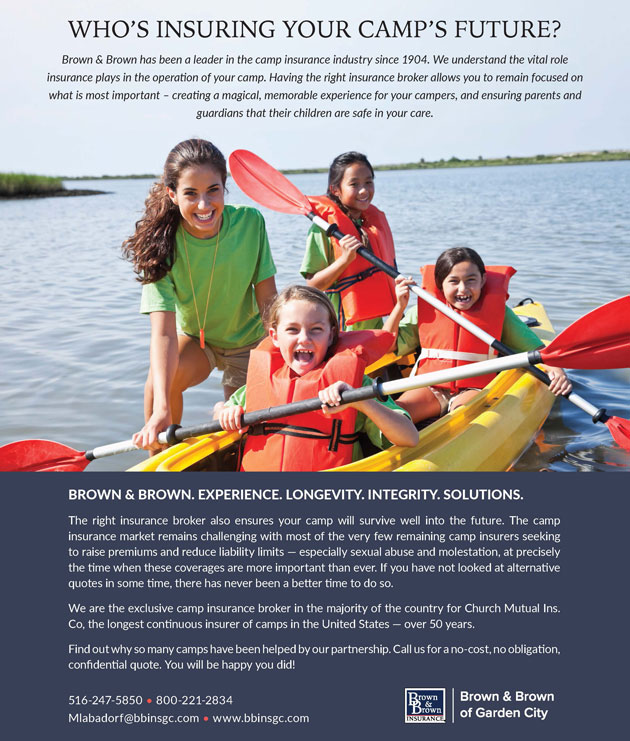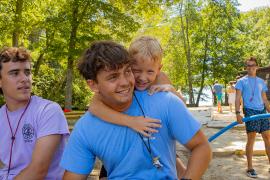Dear Colleagues:
Happy New Year! Hopefully, families across our country are still enjoying memories of a happier and healthier 2021 Thanksgiving and holiday season despite the continuing COVID-19 pandemic. At the American Camp Association (ACA), the season of gratitude lasts all year. We couldn’t succeed in our mission without you and I want to express my deep appreciation to all of you for pouring your hearts and souls into providing high-quality camp experiences for children and youth in spite of extraordinary challenges and circumstances. Thank you for your devotion, perseverance, and professionalism for all families. You are truly transforming millions of young lives. Yet there are so many more underserved young people who need access to the educational and developmental benefits of camp, especially those who have been disproportionately impacted by the COVID-19 pandemic.
For this reason, I am grateful to a bipartisan coalition of congressional and federal education leaders for allocating considerable funding over the next two years to address learning loss through programs that respond to social and emotional needs — and specifically for summer learning and enrichment programs. To quote the Department of Education’s COVID-19 playbook (2021):
Summer learning programs should also be designed to meet the social and emotional needs of students and provide them with engaging and enriching programs. Camps can also play a role in summer learning, depending on the design and quality of the experience. Local leaders should reduce barriers (e.g., transportation, cost, enrollment process) to attending high-quality summer camps, which might support academic, social-emotional, and health outcomes, particularly for underserved children and youth.
It’s worth noting that since this playbook was last updated in August of 2021, I have learned that national education leaders are looking for camps to partner with districts and local schools in both summer learning programs and in outdoor academy-style camp-school partnership programs during the school year.
I recently attended the National Summer Learning Association (NSLA)’s conference, Summer Changes Everything, with ACA Board Chair Scott Brody, our Board Chair-Elect Liz Fogel, and several other current and former ACA national board members, including NSLA CEO Aaron Dworkin. Despite COVID-19, it truly was a watershed moment in US education and there were numerous excellent opportunities for camp to be front and center in key discussions about the state of education, camp-community school partnerships, equitable access to summer learning, and systemic transformation.
At the core of these strategies are camp partnerships with community schools. Community schools are a local engagement strategy helping to create and coordinate opportunities between community partners (such as children’s camps) and local schools to accelerate student success. This strategy is a vehicle for local decision-making that responds to the unique needs of each community — bringing together relationships and neighborhood or town assets in a manner that effectively utilizes resources to advance the education, well-being, and developmental needs of young people. Through leadership, innovation, and available funding, camp professionals now have amazing opportunities to help provide millions of underserved children and youth with equitable access to high-quality summer camp experiences and to partner with local community schools to provide evidence-informed, camp-school, whole-child education to local communities during the school year. This is a historic inflection point for underserved families and American camp, and ACA is working hard to support these opportunities in partnership with other out-of-school-time youth development partners and federal, state, and local education leaders.
Thank you for your devoted leadership for children and youth across the nation. See you in Portland!
Reference
US Department of Education. (2021). ED COVID-19 handbook: Roadmap to reopening safely and meeting all students’ needs. www2.ed.gov/documents/coronavirus/reopening-2.pdf



